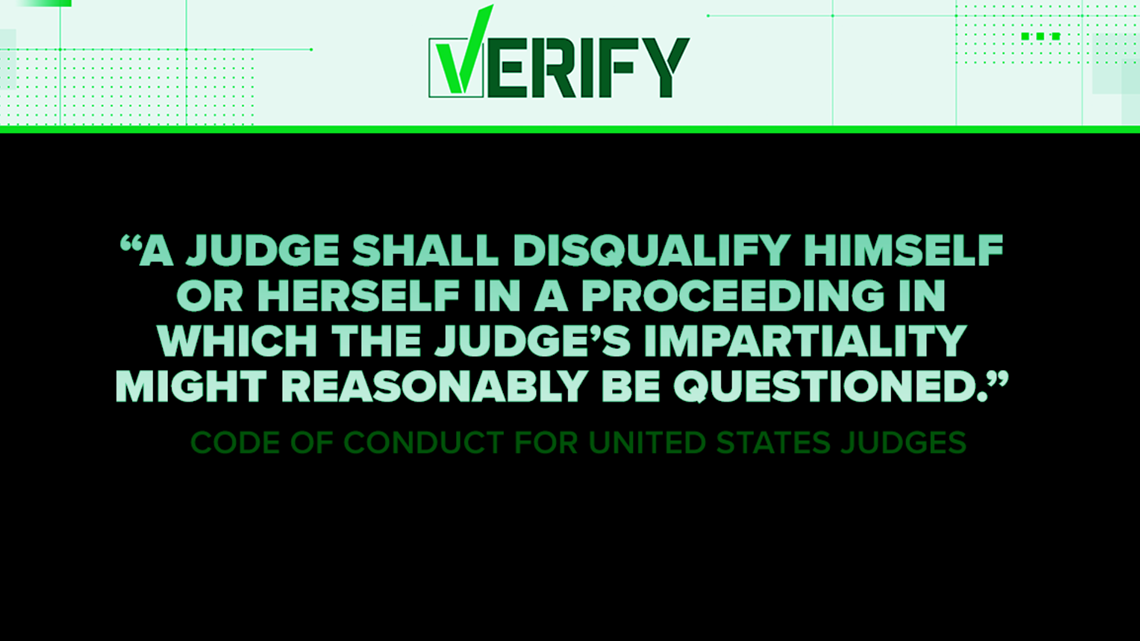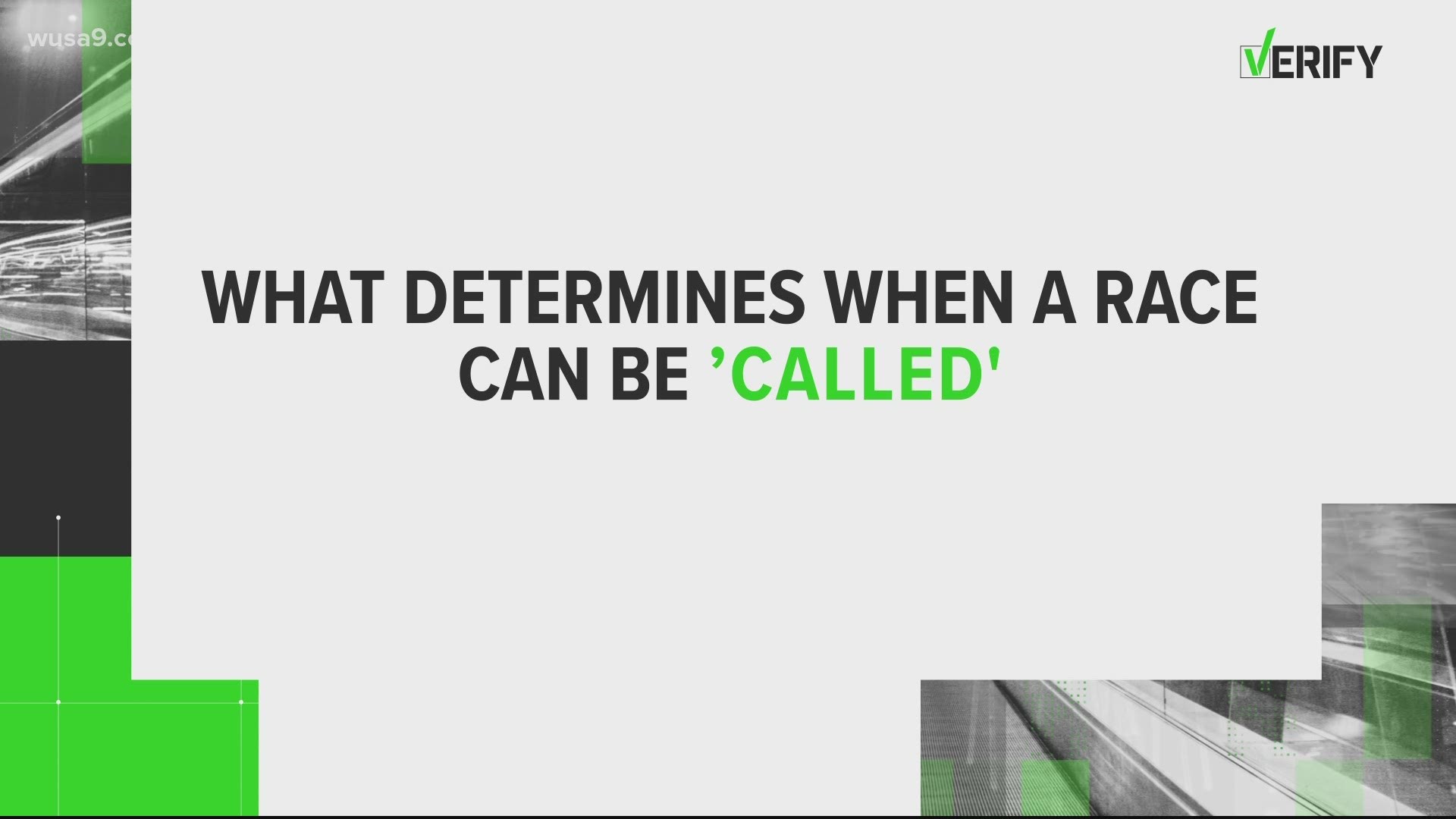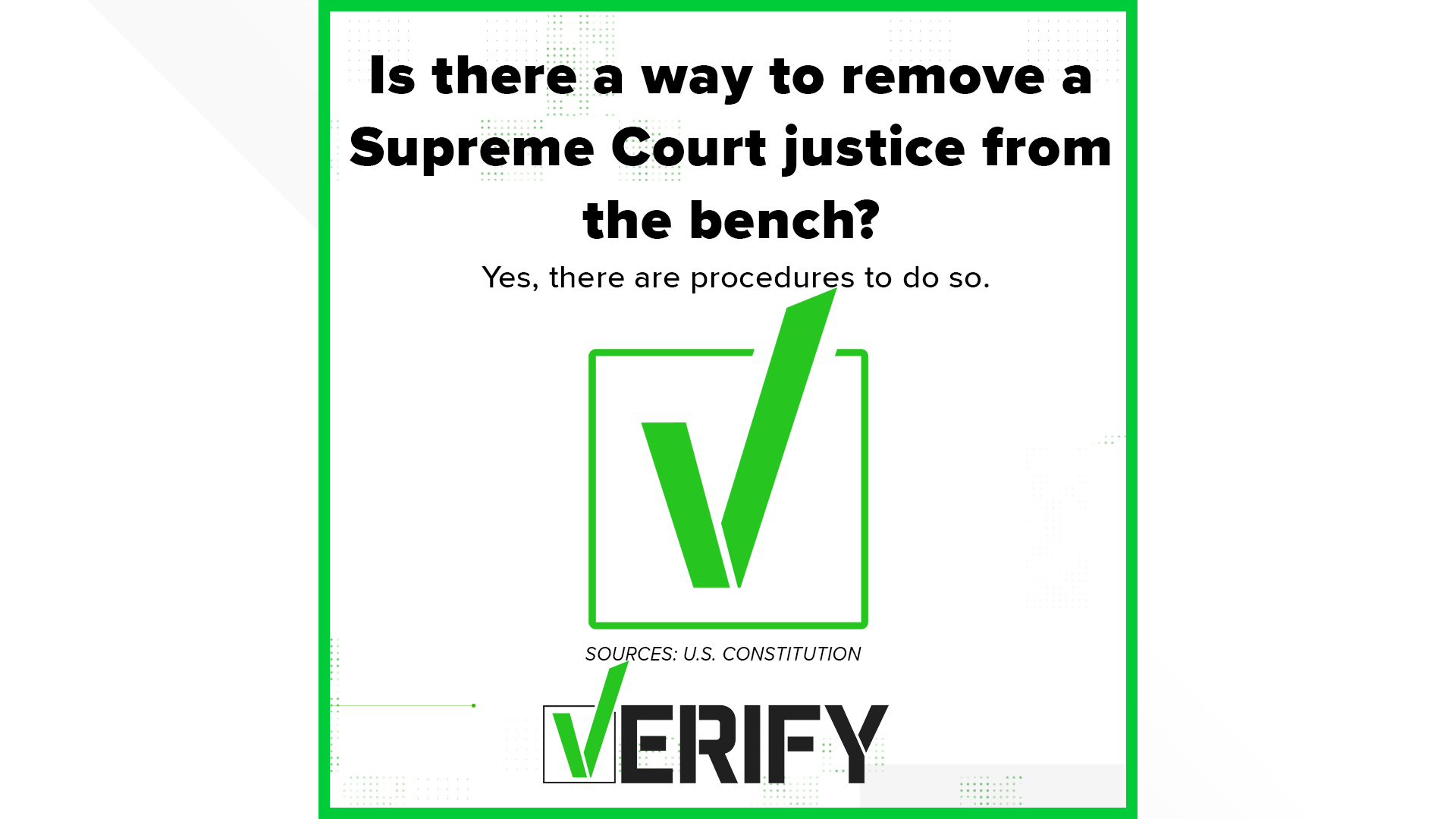WASHINGTON — Analysts called most states within 24 hours of polls closing, but votes for the 2020 presidential election could still need counting well into November.
Early on Nov.4, President Donald Trump took to the podium to speak on the state of the election and falsely claim victory. In his speech, he said, "we will be going to the Supreme Court."
While it's unclear which path the Trump campaign plans to take to the highest court in the land, the Verify team is breaking down some of the big questions surrounding the way the Supreme Court has participated in past elections.
SOURCES:
- Robert Peck, Constitutional Attorney with the Center for Constitutional litigation
- Victoria Nourse, Georgetown University Law Center
- Code of Conduct For United States Judges
Would Supreme Court Justice Amy Coney Barrett need to recuse herself from ruling on the 2020 election?
The Verify team looked through the Code of Conduct for United States Judges.
“A judge shall disqualify himself or herself in a proceeding in which the judge’s impartiality might reasonably be questioned," the Code of Conduct reads.
The code of conduct lists the many reasons one might be required to recuse themselves, including the following:
- If the judge has "a personal bias or prejudice" concerning the case.
- If the judge "served as a lawyer in the matter."
- If the judge has a "financial interest" in the subject matter.
- If the judge or the judge's family member is involved in the case
- If the judge "has served in governmental employment and in that capacity participated as a judge (in a previous judicial position), counsel, advisor, or material witness concerning the proceeding..."
But our legal experts say these are just recommendations and are not constitutionally binding for the Supreme Court Justices.
“The ethical rules do not apply to the Supreme Court of the United States," said law professor Victoria Nourse. "They help administer these rules.”
Nourse said that justices will often recuse themselves, but this is a personal decision. Recusals are not mandated for these justices.
"They do it as a matter of grace (as) they call it," she said. "Or a matter of wisdom.”
"There are no requirements or rules governing Supreme Court justices," Constitutional Attorney Robert Peck told us in an email. "They each make the decision on recusal for themselves."
On the second day of Justice Amy Coney Barrett's Senate Judiciary Hearing, Vermont Senator Patrick Leahy asked Barrett if she can commit to recusing herself from any Supreme Court ruling on disputes concerning the 2020 presidential election. She did not say she would.
"Senator Leahy," Barrett responded, "I commit to you to fully and faithfully apply the law of recusal. And part of that law is to consider any appearance questions. And I will apply the factors that other justices have before me in determining whether the circumstances require my recusal or not. But I cannot offer a legal conclusion right now about the outcome of the decision I would reach."
While Barrett did not commit to a recusal on that day, October 13, she did not take part in an October 28 decision on Pennsylvania's absentee ballot deadline.


How has the Supreme Court participated in past U.S. presidential elections?
The major case that comes to mind for most Americans is the 2000's Bush v. Gore.
"Florida’s electoral votes decided the election – and Bush challenged the way that disputed votes were being counted because different counties in Florida were using different criteria to decide whether the vote should be counted," Peck explains.
"Ultimately, the Supreme Court, by a 7-2 vote found that equal protection required the vote count to stop, but 5-4 against sending the case back to Florida for a recount using a uniform counting methodology," Peck continued.The result allowed Bush to be declared president on the basis of the existing count by a tiny margin."
But Peck says there are no other comparable instances of a Supreme Court weighing in on a presidential election.
He says if the Trump campaign wants to get a case in front of the justices, it will need to go to a trial court and a court of appeals which could take as long as a month.


